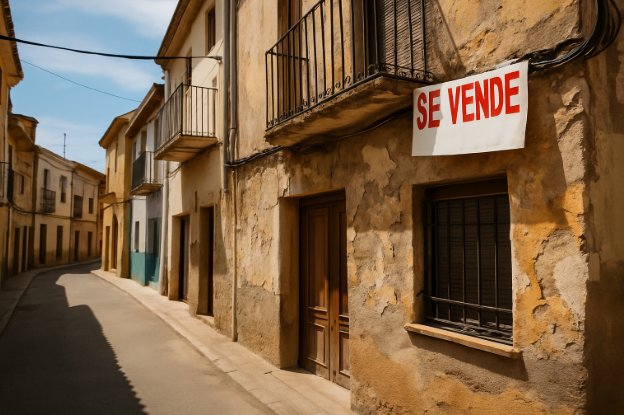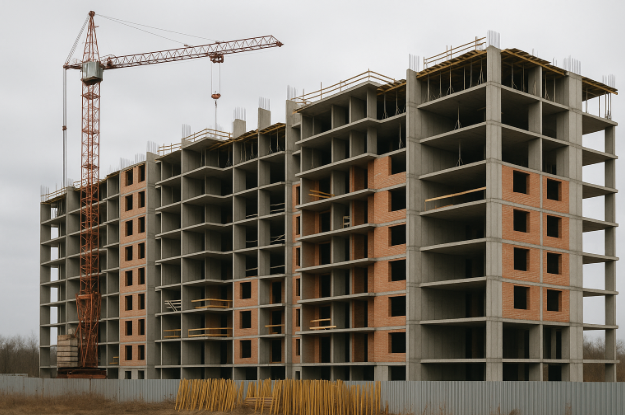Pitfalls of buying property in Spain? Spain remains one of the most popular destinations for UK property buyers in 2025. With its sunny climate, vibrant culture, and perceived affordability, Spain draws thousands of British investors, retirees, and holiday-home seekers each year. However, the journey from browsing listings to legally owning a home in Spain is filled with potential pitfalls. This guide exposes the critical challenges that UK buyers face, offering actionable insights to avoid financial, legal, and bureaucratic setbacks.
What are the pitfalls of buying property in Spain from the UK?
UK buyers face unique challenges
Buying a property abroad comes with specific hurdles, and for UK residents, the post-Brexit landscape has made things more complex. Key challenges include:
-
Limited local presence: Viewing properties remotely or relying on agents can lead to missed issues like poor location, noise, or construction faults.
-
Currency volatility: Sudden GBP/EUR exchange rate changes can alter your budget by thousands.
-
Money transfer fees: International transactions incur bank fees and potential delays.
-
Limited mortgage access: UK banks rarely offer mortgages for Spanish properties post-Brexit, and Spanish lenders impose stricter conditions.
-
Paperwork delays: Navigating a different legal and financial system while working across time zones can stretch the process.
What are the mortgage & financing pitfalls for UK buyers?
Lending conditions for UK citizens purchasing in Spain are frequently less favourable:
-
-
LTV ratios are lower: Many lenders only finance 60–70% of the purchase price for non-residents.
-
Interest rates are higher: Non-resident borrowers pay a premium, often 1–2% more than residents.
-
Hidden costs: Life insurance or building insurance may be mandatory to secure a loan.
-
Foreign exchange exposure: You may pay more in repayments if sterling weakens over time.
- After Brexit, fewer lenders are prepared to lend since some banks now demand EU residency.
-
How does bureaucracy slow your purchase in 2025?
Spain’s bureaucratic processes can slow even well-planned purchases:
-
NIE number is mandatory for any property purchase, and delays in appointment availability can hold things up.
-
Opening a Spanish bank account is often time-consuming, especially with identity verification for non-residents.
-
Financial documentation: Spanish banks demand translated proof of income, tax returns, and bank statements.
-
Document translation delays: UK paperwork often needs to be translated and notarised—adding cost and time.
-
Power of attorney may be necessary if you can’t be present for signing—adding legal cost and complexity.
Why are properties so cheap in Spain – and is it a red flag?

Not all low-priced Spanish properties are bargains:
-
Oversupply in inland or rural areas dates back to the post-2008 crisis.
-
Declining towns: Lack of jobs and young people creates low demand and poor resale value.
-
Legal status uncertainty: Properties may lack proper documentation or be tied up in inheritance disputes.
-
Deferred maintenance: Some “bargains” have hidden repair costs due to neglect or subpar materials.
-
Flood zones and illegal builds are surprisingly common in older rural homes.
Where should I not buy in Spain—and why?
Certain regions pose higher risks for UK buyers:
| Region | Risk Factors |
|---|---|
| Inner Galicia | Shrinking villages, weak rental market |
| Costa Brava | Tourist backlash, tighter rental controls |
| Inland Murcia | High vacancy, few resale opportunities |
| Rural Extremadura | Beautiful but lacks infrastructure or jobs |
| Outskirts of Madrid | Risk of urban sprawl with low future value |
Avoid areas with land disputes, poor local amenities, or where the English-speaking legal and support infrastructure is minimal.
What are the hidden and ongoing costs when buying property in Spain?

Upfront costs:
- Property Transfer Tax: 6–10%.
- Legal Fees: 1–2%.
- Notary and registration: €500–€2,000.
- Bank/mortgage fees: 1–2%.
Ongoing costs:
- IBI (municipal tax).
- Community fees.
- Utilities and maintenance.
- Non-resident income tax.
- Insurance.
How do legal checks and title issues cause major headaches?
Spain’s property register system isn’t foolproof. Common legal problems include:
-
Outstanding debts: Mortgages or unpaid taxes may be tied to the property.
-
Illegal builds or extensions: Particularly on rural land or urban edges.
-
Inheritance complications: Homes passed down without formal title change can be sold illegally.
-
Shared ownership: In rural areas, several family members may co-own a property without clear rights.
-
Developer issues: If buying new, ensure the builder is solvent and that you receive a bank guarantee.
Always obtain a Nota Simple (Land Registry extract) and have an independent solicitor verify everything—never rely solely on the estate agent’s lawyer.
Could Brexit and new reforms block your purchase?
Post-Brexit, UK buyers are non-EU citizens. Key issues:
- Proposed 100% tax on non-EU property purchases.
- Restrictions on buying near sensitive locations (e.g., military zones).
- Stricter visa requirements.
Stay updated on Spanish parliamentary changes that could impact buyers.
What are the market risks in 2025—bubble, saturation, or opportunity?
There are both risks and rewards in the current market:
-
Overheating in coastal cities: Especially in Andalusia and Catalonia, where tourism and foreign demand drive prices.
-
Rising anti-tourism pressure: Could limit Airbnb-style letting, reducing potential returns.
-
Interest rate sensitivity: Property values could fall if rates rise sharply or demand cools.
-
Regional laws: Property taxes and rental rules differ between Valencia, Madrid, and Balearic Islands—know your area before investing.
Opportunities still exist in undervalued inland towns with good transport links.
What are the risks of buying off‑plan/new builds?

-
Construction Delays & Developer Bankruptcy: Projects often overrun, and if the developer goes bust mid-build, you risk losing your deposit—unless secured by a bank guarantee.
-
Poor Build Quality: Issues like damp, poor insulation, or plumbing faults may only become visible after completion. Always commission a snagging survey.
-
Unclear Legal Title or Land Issues: Some developments are built on land with unresolved ownership or planning permissions—posing long-term legal risks.
-
Lack of Amenities or Infrastructure: New builds may be in underdeveloped areas with no shops, roads, or services for months or years.
-
Unexpected Cost Increases: VAT (10%), legal fees, utility connection charges, and community fees can push final costs 12–15% higher than the advertised price.
-
Spec Changes & Misrepresentation: The final property may differ from what was shown in marketing brochures—smaller sizes, lower-spec materials, or layout alterations.
-
Legal and Licensing Delays: Even after completion, delays in obtaining first occupancy licences or rental permits can impact usability and income potential.
How long can I stay in Spain if I own a house?
Buying a property does not grant automatic residency.
-
-
Schengen rule: UK citizens can stay up to 90 days in any 180-day period without a visa.
-
Long-term stay options:
-
Golden Visa: Invest €500,000+ and apply for a 2-year renewable residence permit.
-
Non-lucrative visa: Requires income proof but no work allowed.
-
Digital Nomad Visa (2023): Allows remote workers to reside legally in Spain.
-
-
How to Reduce Property Tax in Spain (Legally)
You can’t fully avoid property taxes, but you can reduce them legally:
-
- Purchase in areas with reduced taxes, such as Madrid (lower ITP).
-
Use the UK-Spain tax treaty to avoid double taxation.
-
Rent legally and deduct costs (if you’re an EU resident or dual resident).
-
Hold property in a family member’s name to lower tax brackets.
-
Consider buying through a Spanish company, but only if you plan to invest.
⚠️ Avoid tax evasion. Declare full value and stay compliant to avoid fines.
What are the pros and cons of buying property in Spain?
Pros:
- Excellent weather and quality of life.
- Less expensive to live in than the UK.
- Strong tourist rental potential in key regions.
- Diverse property types (villas, apartments, rustic homes).
Cons:
- High upfront and hidden costs (taxes, fees).
- Complex bureaucracy and legal language barriers.
- Maintenance responsibilities and community fees.
- Property scams and unclear title issues.
Conclusion
The pitfalls of buying property in Spain for UK citizens in 2025 are multifaceted—legal, financial, and bureaucratic. Spanish life still has a lot to offer, but purchasers need to be well-prepared. Employ an experienced Spanish solicitor, conduct due diligence, stay informed about evolving laws, and budget realistically.
FAQs
Can UK citizens still buy property in Spain post‑Brexit?
Yes, but they face stricter rules and potential new taxes.
How much should I budget for hidden fees and taxes?
At least 10–12% of the property value.
Should I avoid off‑plan developments?
Only if there are no guarantees—ensure legal and financial protections are in place.
Will Spain impose a 100% tax on non-EU buyers?
Proposed in 2025; not yet law. Monitor developments closely.
If I own property in Spain, how long may I stay there?
90 out of 180 days unless you get a long-term visa.
Which regions should I avoid buying in?
Inland ghost towns, high-tourist coastal cities under regulation.
Why are bargain homes risky?
They may have legal or structural problems.
How can I minimise bureaucracy delays?
Hire a multilingual local attorney and begin your NIE application as soon as possible.

I’m Joe Chris, co-author at ukbusinessmag.co.uk and a long-time enthusiast of all things business and finance. My background is in digital marketing and e-commerce, and I love diving into trends that impact the UK business landscape. Through my writing, I aim to make useful, real-world advice accessible to business owners.



